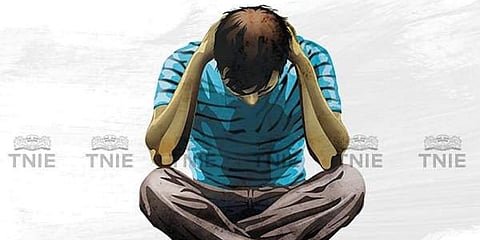

Post-Traumatic Stress Disorder (PTSD) is a mental health condition that is triggered by unusual human experiences like a catastrophic accident, wars, sexual assault or natural disasters that lead to severe anxiety, nightmares and flashbacks.
During the lockdown phase in India, the Department of Community Medicine conducted a survey that revealed that 28.2 per cent of those who participated in the survey suffered from PTSD during the same period. PTSD is usually treated with counselling and medication, yet most patients continue to experience some symptoms since the counselling approach requires people to again engage with the traumatic memories.
The ancient practice of yoga can be used as a way to deal with PTSD effectively by regaining control of the nervous system through different practices. Yoga combines different physical postures, breathing and meditation. Studies have shown that yoga reduces physiological arousal, especially in PTSD patients and improves body awareness and somatic regulation, which are critical to emotion regulation.
Alleviates stress and anxiety
Some of the usual symptoms of PTSD include persistent feelings of shame, guilt, anger, or fear, along with difficulty in expressing positive emotions such as love and gratitude. Yoga can be an effective treatment for the condition as it works the mind and the body and also assists in creating a sense of peace and calm from which PTSD-affected individuals can draw support and comfort. A study involving army veterans diagnosed with PTSD undergoing one-hour sessions of yoga daily showed a reduction in anxiety symptoms, respiration rate and symptom severity after one year of follow-up.
Trauma can affect individuals cognitively, physiologically and emotionally, with the outcomes felt in both the mind and body. Yoga acts across these different domains, leading people with PTSD to increasingly turn towards this age-old practice on their way to recovery.
Yoga helps PTSD patients to return to a baseline physiological state quickly after a disturbing memory is triggered. It’s believed that daily yoga practice trains the autonomic nervous system to be dynamically adaptive, and mindfulness meditation, which is also a part of yoga, leads to a positive change in neural functioning.
An intricate part of yoga is body awareness and regular practice assists people in developing skills to tolerate and modulate physiologic and affective states, which become deregulated by trauma exposure. Enhanced coping is attained through improved resilience and enhanced social connections that can be achieved in group yoga practice.
Baddha Konasana (Cobbler Pose)
It is a restorative yoga pose that assists with better body alignment and sleeping. It can give PTSD patients a sense of calmness and relaxation. Practising the pose on a daily basis can also be the key to getting a good night's sleep.
Kapal Bhati Pranayama (Skull Shining Breathing Technique)
Kapal Bhati Pranayama or the skull shining breathing technique pranayama helps to improve blood circulation within the body and energises the nervous system. This breathing technique rejuvenates the brain cells and uplifts the mind.
Tadasana (Mountain Pose)
Focussing on the breath, body and thoughts while practising this pose increases awareness of the present and promotes mental clarity. It’s also vital to note that the Mountain Pose is a good way of improving mindfulness. Mindfulness enhances the quality of life and increases the melatonin levels in the body, helping a person stay relaxed and reduce stress.
Shavasana (Corpse Pose)
The final resting pose in yoga also known as the Corpse Pose, which helps repair cells and tissues while relieving stress from the body. This asana also reduces anxiety and blood pressure and is helpful for people going through PTSD.
(The author is Chief Yoga Officer, Jindal Naturecure Institute)